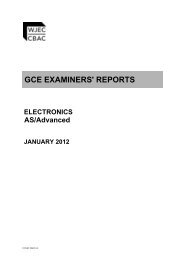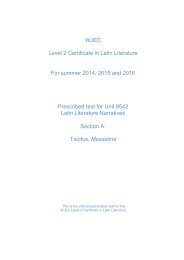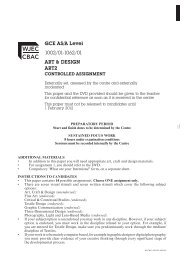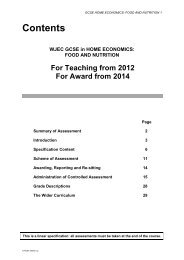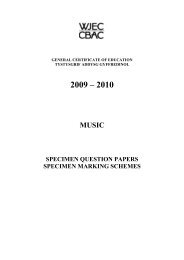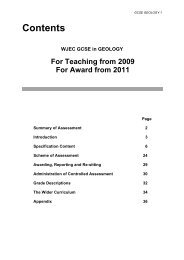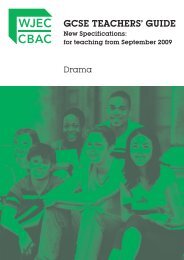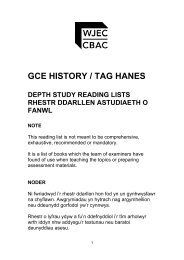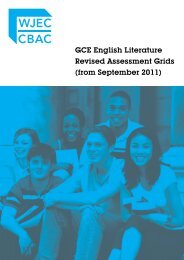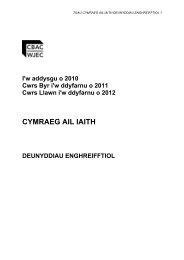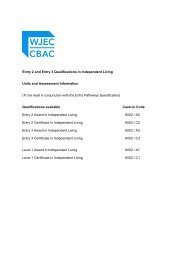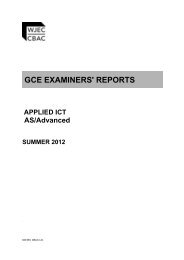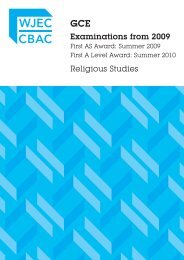WJEC ENGLISH LITERATURE
WJEC ENGLISH LITERATURE
WJEC ENGLISH LITERATURE
You also want an ePaper? Increase the reach of your titles
YUMPU automatically turns print PDFs into web optimized ePapers that Google loves.
Appendix 1<br />
LT 2 SECTION B: Guidance on assessing Poetry<br />
Some features to look for when assessing poems<br />
• How much attention has been paid to shape and structure?<br />
• Is the poem written in a particular stanza? This may be traditional or the writer’s own<br />
verse form.<br />
• Has the writer tried to shape material in a controlled way?<br />
• If the poem is written in free verse, how well does the use of lines match the writer’s<br />
meaning or communicate the writer’s effects? In other words, does the writer have an<br />
effective sense of line?<br />
• How has the poem been structured? Is the development controlled by narrative –<br />
chronology of event or experience – or has the writer used a central image or<br />
extended metaphor to hold the poem together?<br />
• How imaginative is the use of language? Are the images, the choice of words<br />
individual, original, startling, appropriate? How creative has the writer been in<br />
exploring ideas and experiences and making links?<br />
• Young writers are very aware of the sound (aural) features of language. How<br />
sensitively has sound been used? Has alliteration/assonance been overdone, used<br />
for its own sake?<br />
• Has rhyme been used unobtrusively mostly, obtrusively when necessary, or has the<br />
compulsion to rhyme driven the direction of the language and meaning?<br />
• Has sound been used to link words and expressions to shape intention and sustain<br />
coherence?<br />
• Do the words show rather than tell? Or if they tell, is the telling new or surprising?<br />
• How necessary are the last lines? Endings can be very difficult: there can be a<br />
tendency to explain all that has gone before, to find a moral, recapitulate or to finish<br />
neatly in a way which narrows down the scope and possibilities of the poem. So<br />
endings can undermine the success of the poem.<br />
Unlike prose responses, a poetry response will usually consist of a number of poems. (Of<br />
course, there will be some long poems submitted.) Assess positively: some poems may be<br />
stronger than others. Reward the strengths of the collection, bearing in mind the key<br />
words of the AO and using the grid to find a best fit.<br />
AO1<br />
Articulate creative, informed and relevant responses to literary texts, using appropriate<br />
terminology and concepts, and coherent, accurate written<br />
expression.<br />
40



